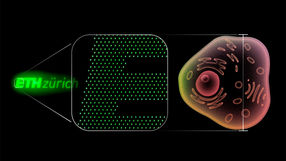Paper-based device could bring medical testing to remote locales
In remote regions of the world where electricity is hard to come by and scientific instruments are even scarcer, conducting medical tests at a doctor's office or medical lab is rarely an option. Scientists are now reporting progress toward an inexpensive point-of-care, paper-based device to fill that void with no electronics required. Their study on the extremely sensitive test, which simply relies on the user keeping track of time, appears in the ACS journal Analytical Chemistry.
Scott T. Phillips and colleagues point out that people living in places with limited resources often don't have the means to purchase and operate conventional medical tests. Such tests, conducted at a doctor's office or clinical laboratory, detect or monitor disease with a hand-held or desktop electronic device. Many of them work by measuring the levels of specific proteins in a patient's blood that can indicate a wide range of serious medical conditions, including heart attacks and certain cancers. Phillips' team wanted to develop a similar and sensitive tool to measure small amounts of disease markers that would be much less expensive, easier to operate and work without a power source.
They developed a new paper-based device that is about the size of a stick of gum. In initial experiments, they used it to detect a liver enzyme that in high amounts can suggest liver or bone problems, and another enzyme that is a marker for fecal contamination in water. After applying a sample to the device, a small white dot turns green if the enzyme is present. After a few seconds or minutes, another small white dot turns green. The longer it takes for the second dot to change color after the first, the higher the concentration of the enzyme. The device uses just a few inexpensive materials and can be altered to measure a wide range of enzymes to monitor many different conditions.
Most read news
Other news from the department science

Get the analytics and lab tech industry in your inbox
By submitting this form you agree that LUMITOS AG will send you the newsletter(s) selected above by email. Your data will not be passed on to third parties. Your data will be stored and processed in accordance with our data protection regulations. LUMITOS may contact you by email for the purpose of advertising or market and opinion surveys. You can revoke your consent at any time without giving reasons to LUMITOS AG, Ernst-Augustin-Str. 2, 12489 Berlin, Germany or by e-mail at revoke@lumitos.com with effect for the future. In addition, each email contains a link to unsubscribe from the corresponding newsletter.


















































